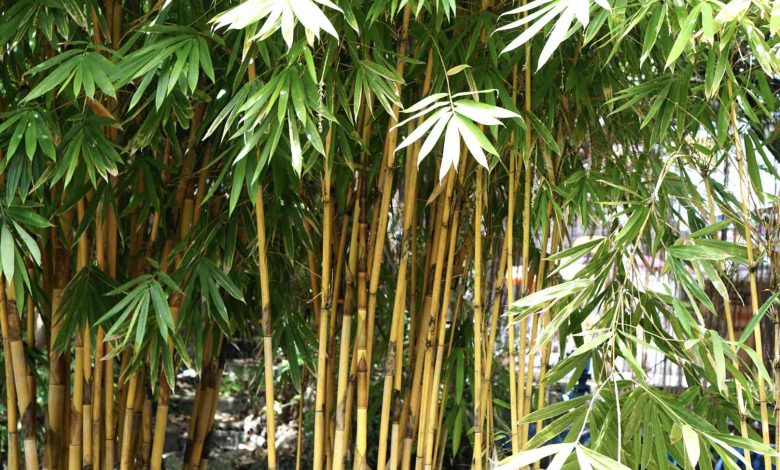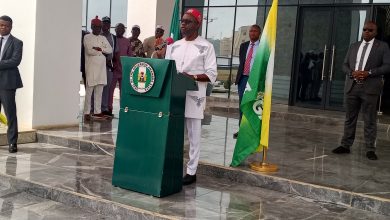
By Alfred Ajayi
Bamboo is simply grass. Calling bamboo a grass will most likely strike a chord of scrutiny in many readers of this piece. How can “bamboo tree” as we call it since generations now be referred to as a grass? Interestingly, bamboo has never been a tree but a giant grass full of wonders.
“Although bamboo is a grass, many of the larger woody bamboo species are very tree-like in appearance and are often called “bamboo trees”. However, there are a few essential differences between grasses and trees: Like all grasses, bamboo stems (culms) are essentially hollow,” Guadua Bamboo, which specializes in the largest, strongest and most economically important bamboo of the Americas, submits.
According to Guadua Bamboo, “bamboo belongs to the Bambusoideae subfamily of the perennial evergreen grass family Poaceae (Gramineae). Of all grasses, bamboo is the largest and the only one that can diversify into a forest.
Bamboo is a giant grass which grows with shallow grass like roots (just like lawn) producing new canes (culms) in the spring. The shoots emerge out of the ground and grow in height and diameter for around 60 days. Bamboo grows from its roots and when it is cut, it quickly grows back. Most of its species mature between three and five years.
It grows in both tropical and temperate environments and all continents have native species, except Europe and Antartica, where non-native species still grow. Bamboo, which comes in different shapes, sizes and colours, has 91 genera and over 1,600 species and is the fastest growing land plant in the world after giant sea kelp in the ocean.
Bamboo among other benefits possesses the ability to cool down the surrounding air by up to 8 degrees in summer. In other words, it provides a natural air conditioning for gardens and buildings close to it.
The Founding Director, Sahelian Institute for Bamboo Research and Entrepreneurship Development (SIBRED), at Nnamdi Azikiwe University, Awka, Mr John Agbo Ogbodo, in a paper presentation during the 2023 World Bamboo Day with the theme “Environmental Restoration and Job Creation,” enumerated the many benefits of this incredible grass.
“Basically, the International Network on Bamboo and Rattan (INBAR) considers bamboo as a vital resource of a Green Economy. For example, since 2018, China earns up to $60 billion (globally) and $39 billion (domestically) from bamboo and rattan sector.
“Bamboo sequesters carbon better than terrestrial forests up to 17 tonnes per hectare per year within the root systems. It provides tremendous restorative powers to degraded lands, clean soil and water of contaminants, mitigate erosion, restore moisture content and revitalize soil nutrients”.
Ogbodo noted that bamboo also possesses restorative and economic values which Africa and indeed Nigeria can leverage to advance the fight against ecological degradation, climate change as well as build a vibrant economy.
“Bamboo rehabilitates degraded land, develops and supports biodiversity. It offers protection against flooding and wind, as well as restores over-farmed and over-grazed lands,”
“The bamboo forestry and commodities could contribute to meeting the nationally determined contributions (NDCs) targets of the Paris Agreement in Nigeria because, a number of companies have substituted wood and plastics with bamboo as the raw material and have found it sustainable and useful in conserving environment resources,” Ogbodo further explained.
According to him, bamboo can equally fast track the attainment of the Sustainable Development Goals, (SDGs).
“Bamboos can contribute to attaining sustainable bamboo industry, innovation and infrastructure (SDG-9) through green jobs and manpower creations (SDG-7) that can support sustainable consumption and production patterns (SDG-12), carbon dioxide removal (CDR) (SDG-13), promote avoided tropical deforestation to boost forest biodiversity (SDG-15), bamboo based agro-forestry production and bamboo foliage production for agro-pastoralism that can reduce herder-farmers crises (SDG-2), and SDG-6 (bamboo for flood management), SDG-1 through creation of green jobs and partnership for the goals (SDG-17).
However, the fact that Nigeria has for decades been unable to harness the numerous benefits of bamboo despite its endless struggle for economic survival, is troubling.
“Since bamboos have presence in several states in Nigeria; its versatility could offer Nigerians sustainable solutions to their needs and unemployment issues. The hospitable climate for bamboo production in Nigeria also makes this country an excellent location for the introduction of additional non-native, non-invasive species that are particularly valued in the global markets,” Ogbodo said advocating a National Bamboo Forestry Policy or trade standards for bamboo commodities in Nigeria.
Interestingly, discussions at the 2023 World Bamboo Day triggered hope in Diana Doheny, a US-based international board member of the International Bamboo and Rattan Organization, (INBAR). “As a founding board member for the recently inaugurated Sahelian Institute for Bamboo Research and Entrepreneurial Development, I am very excited about the future of bamboo in Nigeria.
“Having a bounty of bamboo in all its regions from north to south and east to west, Nigeria is blessed. The versatility of bamboo is extraordinary. In many areas of the globe, it is considered “green gold”.
“As a fast growing and renewable natural resource, bamboo is a source for food, fiber, fuel, construction and so much more,” Doheny remarked, noting that “as a biomass, both wild and purpose-grown bamboo can provide rural communities with renewable energy. Its by-product can be used as an organic soil amendment.
“Combining the soil amendment with organic waste, this product becomes accelerated compost that can be applied to farmlands to regenerate soil. Regeneration means biodiversity and cooler soils. Improved soil biodiversity means increased production and yields.
“Improved yields afford the opportunity to feed more people with less land, and with nutrient fortified, pesticide-free foods. Both produce and proteins grown and raised on these regenerated soils can improve health outcomes,” she happily noted.
The US-based Bamboo expert maintained that with massive planting of bamboo, Nigeria will not only join countries with thriving bamboo and rattan sector but also be in a better stead to fight the harsh climate change impacts across its nooks and crannies.
“Each and every step of this process produces jobs and income. Bamboo is also known for its ability to sequester large volumes of carbon. If planned, cultivated, monitored, and reported well, this too can provide significant income to communities for long term growth and sustainability.
Be that as it may, the speech by the Minister of Environment, Balarebe Lawal, raised ray of hope about the future of bamboo in Nigeria with Federal Government’s plans to set up the first Bamboo Processing Factory in Karara, Kogi State to amplify the production of various bamboo-based commodities, including toothpicks.
The government he further revealed would establish improved seedling nurseries crucial for sustaining the bamboo processing project, even as he advocated active involvement of stakeholders across the bamboo value chain.
“Bamboo not only plays a crucial role in combating climate change, but also offers opportunities for economic growth and poverty alleviation,”
According to him, the plans are also in alignment with discussions and commitments made by Nigeria during the just-concluded Global Climate Summit COP28 in Dubai. “Not only does it contribute to the preservation of our environment, it also offers opportunities for economic growth and poverty alleviation. Its diverse applications in different sectors of the economy make it a valuable resource for job creation and income generation”.
He also touched on the contribution of bamboo to the fight against climate change. “Bamboo plays a crucial role in combating climate change. Its ability to sequester carbon dioxide and release oxygen surpasses that of many other plant species.
“As the whole world grapples with the menace of climate change and its attendant impacts, we are by this event (World Bamboo Day) reminded of the immense potential this plant holds in addressing some of these pressing challenges.
“Bamboo, often referred to as the “green gold,” has been an integral part of our culture and heritage for centuries. It has proven to be a true gift of nature considering its versatility and numerous environmental and economic benefits,” the minister concluded.
What will Nigeria do with the growing knowledge of bamboo and its value chain? To what extent will the Federal Government implement its lofty plans for the bamboo and rattan industry in the country? These are questions which must be answered appropriately to chart a new course for the industry.
Besides, other tiers (state and local governments) must key into this new drive of the Federal Government as enumerated by the Minister of Environment. There is the need to adequately sensitize relevant non-governmental organizations, private sector and various segments of the country to massively buy into the efforts to give the country a prosperous bamboo sector capable of contributing hugely to the nation’s Gross Domestic Product (GDP) which was put by Statista at 390 billion dollars in 2023, lower than the 477.38 billion dollars for 2022.



